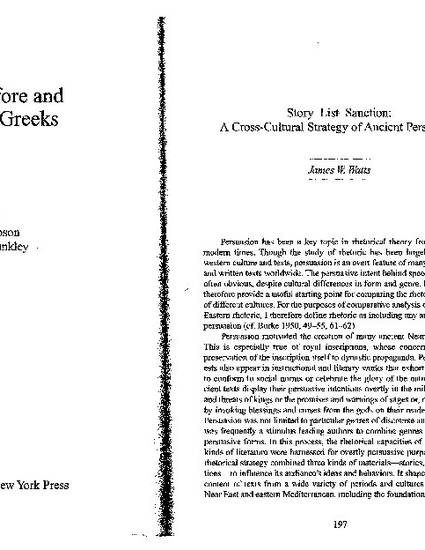
James W. Watts: 0000-0002-4872-4986
- comparative rhetoric; ancient Near Eastern; Egypt; Mesopotamia; Israel; Hittites
Persuasion motivated the creation of many ancient Near Eastern texts. Persuasion was not limited to particular genres of discourse and literature but was frequently a stimulus leading authors to combine gemes to create more persuasive forms. In this process, the rhetorical capacities of many different kinds of liiterature were harnessed for overtly persuasive purposes. One such rhetorical strategy combined three kinds of materials-stories, lists and sanctions-to influence its audience's ideas and behaviors. It shaped the form and content of texts from a wide variety of periods and cultures in the ancient Near East and eastern Mediterranean, including the foundational scriptures of Judaism and Christianity. Through them it has influenced the subsequent course of western religious, legal, and academic rhetoric.

From Rhetoric Before and Beyond the Greeks , ed. Carol S. Lipson and Roberta A. Binckley. Albany: SUNY Press, 2004. Pp. 197-212.